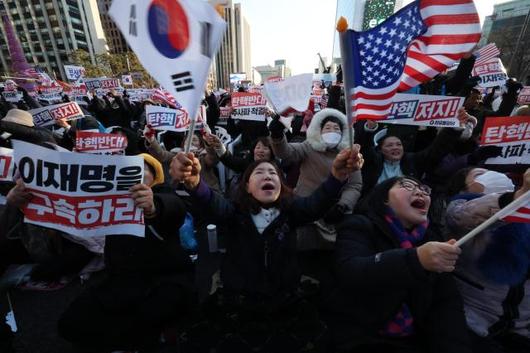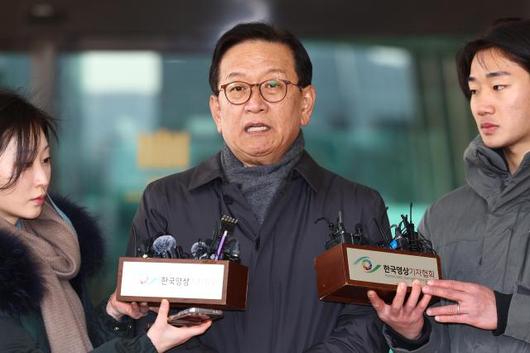 |
Supporters of President Yoon Suk Yeol rally in Seoul, Dec. 14, 2024. Yonhap |
<이미지를 클릭하시면 크게 보실 수 있습니다> |
SEOUL, December 19 (AJP) - President Yoon Suk Yeol’s December 3 martial law decree, criticized as both extreme and impractical, has ignited scrutiny over his decision-making process and alleged reliance on far-right media sources.
Analysts suggest that conspiracy theories promoted by far-right YouTube channels, which have propagated unfounded claims of election fraud, may have influenced the president’s controversial actions.
The channels in question have repeatedly alleged that the results of April’s general election were manipulated, despite the absence of credible evidence.
During the brief martial law period, military personnel reportedly seized control of the National Election Commission (NEC), with security footage purportedly showing soldiers photographing serial numbers on NEC servers.
Defending his actions in a December 12 address, President Yoon criticized the NEC’s digital infrastructure as “deeply flawed” and called for an investigation into alleged election irregularities. His remarks drew sharp criticism for mirroring unsubstantiated narratives circulated by far-right media outlets.
Far-right YouTube channels in South Korea have long promoted conspiracy theories about election fraud, fostering an ecosystem of misinformation that critics warn undermines public trust in democratic institutions. The controversy has also reignited concerns about the role of online platforms in amplifying extreme viewpoints.
 |
Seok Dong-hyeon, a lawyer representing President Yoon Suk Yeol, speaks in front of the prosecution's office in Seoul, Dec. 19, 2014. Yonhap |
<이미지를 클릭하시면 크게 보실 수 있습니다> |
“YouTube’s algorithm often prioritizes content that reinforces users’ preexisting beliefs, creating echo chambers that hinder critical thinking,” said Lim Myung-ho, a psychology professor at Dankook University.
He attributed this phenomenon to confirmation bias, explaining that people are drawn to information that provides psychological comfort, even if it lacks factual basis.
Lee Jae-mook, a professor of political science and diplomacy at Hankuk University of Foreign Studies, described President Yoon as being “trapped in a filter bubble,” a phenomenon where selective exposure to information narrows perspectives.
“By relying on far-right YouTube rather than traditional media, the president has effectively closed his eyes and ears to diverse viewpoints, leading to the current crisis,” Lee said.
President Yoon’s alleged ties to fringe media platforms have raised alarms among political observers, who warn that his reliance on these sources may influence his actions during the impeachment trial. There are growing fears that the president could mobilize far-right factions during the trial, potentially escalating political tensions.
- Copyright ⓒ [아주경제 ajunews.com] 무단전재 배포금지 -
이 기사의 카테고리는 언론사의 분류를 따릅니다.
기사가 속한 카테고리는 언론사가 분류합니다.
언론사는 한 기사를 두 개 이상의 카테고리로 분류할 수 있습니다.
언론사는 한 기사를 두 개 이상의 카테고리로 분류할 수 있습니다.


